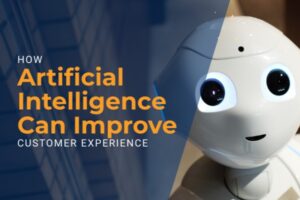You get it. Customer experience is more than a “new thing.” It’s not an initiative or a program. It’s a mindset and a perspective. Almost a way of life. Customer experience is overtaking other more traditional differentiators, and according to Forrester Research, companies that prioritize the customer experience grow 14 percent faster than the laggards.
Christine Crandell recently wrote on Frobes.com, “Customer experience is about all-inclusive strategic alignment between the customer’s engagement expectations, brand promise and the company culture behind the brand.”
That said, there are countless products and services aimed at helping you get your arms and head around your business’ customer experience. A lot of these offerings are great, some aren’t. But none of them are worth half a percent of your investment if you don’t have a culture that supports the customer experience. Here are five ways to tell if your company is walking the walk when it comes to Cx.
Do employees “get it?”
Are your customer feedback and employee feedback programs aligned? This is related to Christa’s blog last week where she wrote, “A common barrier to achieving consistently good customer experience is when employees feel that there’s a disconnect between how the company treats them and how they’re expected to treat consumers.” Furthermore, do you have processes in place to collect and implement employee insights into customer needs? Make sure you are connected – and open – to this valuable source of information. How about your employee recognition program? Do you provide rewards based on customer feedback?
Is your customer in the room?
Do you have an open seat at every meeting and company event for your customer? We often say, “Start with the customer,” when developing new products or designing digital features, so why wouldn’t your culture journey start with them, too? Conduct focus groups, lunch-and-learns, etc. and be prepared to abandon your preconceived notions about what you think you already know about your customers.
When asked, “Who’s in customer service?” does everyone in your organization raise their hand?
They should. Everyone, no matter their job title or position, should do at least some customer service. Employees have jobs because your business has customers. Although that’s clear to you, it’s not necessarily front-of-mind for the engineer or custodian. What’s more, employees should have the opportunity to experience your business from the customer’s perspective.
What do you do with your data?
You most likely already have some form of customer satisfaction measurement in place, but that’s only the first step. What matters is what you do with that data. Are you providing this information transparently across every department? Are you making it easy to understand and connecting the dots to where it meets with specific behaviors? Make it your goal to get everyone obsessed with customer experience.
Are employees empowered?
Part of providing amazing customer experience is empowering your frontline employees to do whatever it takes to make your customers happy. You’ve got the right people in the right places, now give them room. A sense of ownership leads to happier employees, which we know leads to happier customers. And isn’t that the point?
A great example of this is the Ritz-Carlton. Its motto is, “We are Ladies and Gentlemen serving Ladies and Gentlemen.” Ritz-Carlton empowers its employees by budgeting $2,000 for every employee to spend to create memorable guest experiences. This kind of “whatever-it-takes” philosophy sends a strong signal about your company’s Cx priorities.
CH Consulting can help you realign your company’s strategies – from financials to HR – and culture to become a customer experience powerhouse. Contact us today to learn more.




